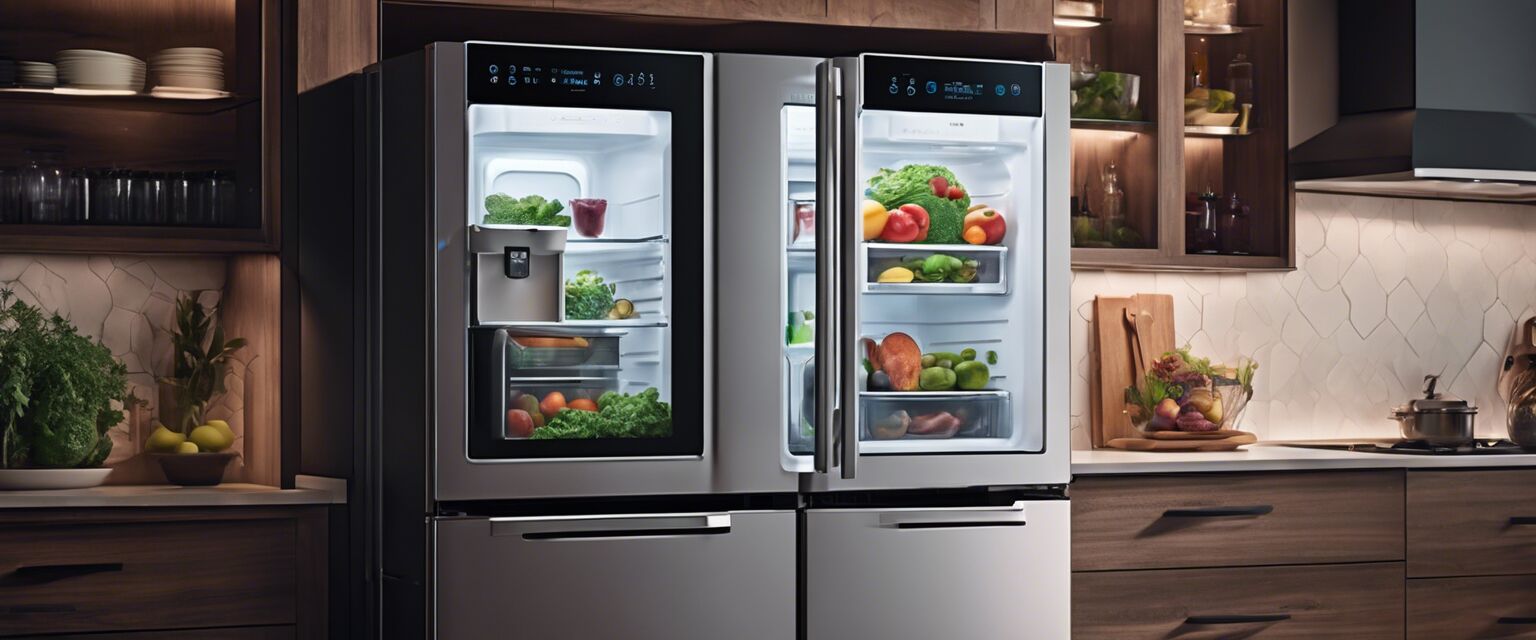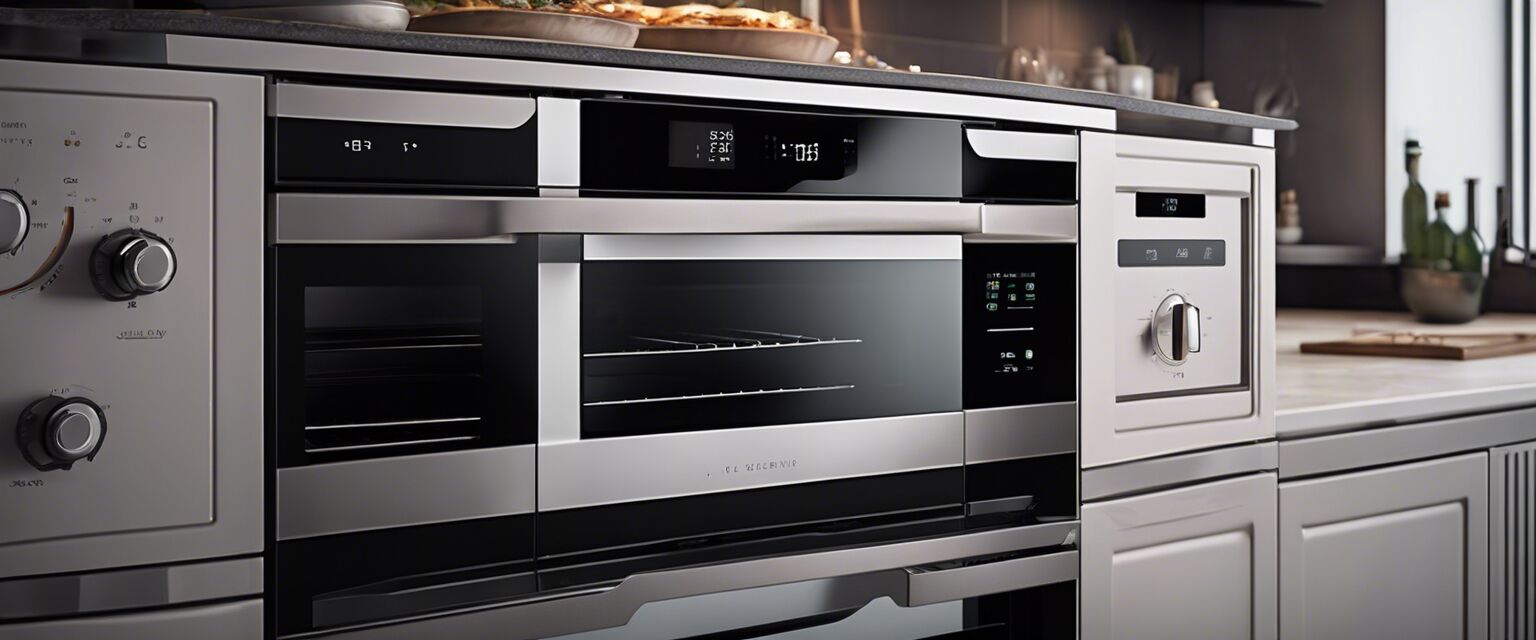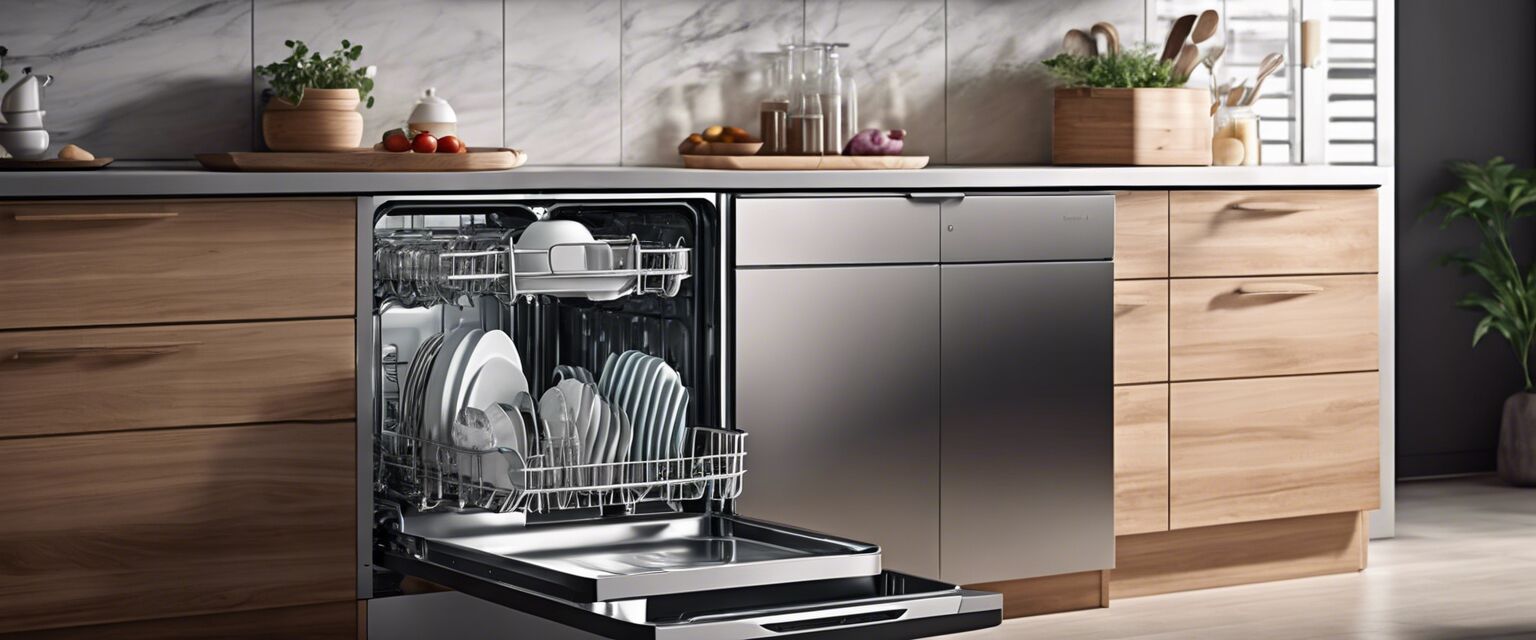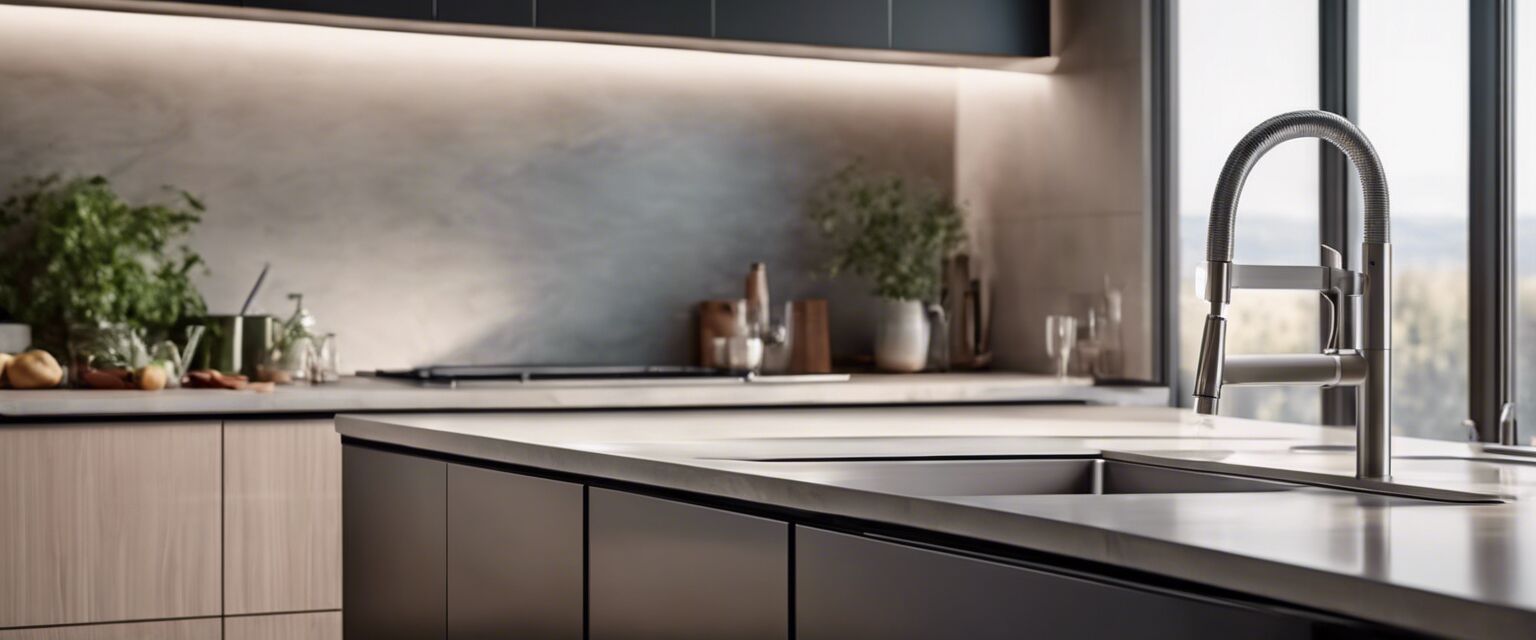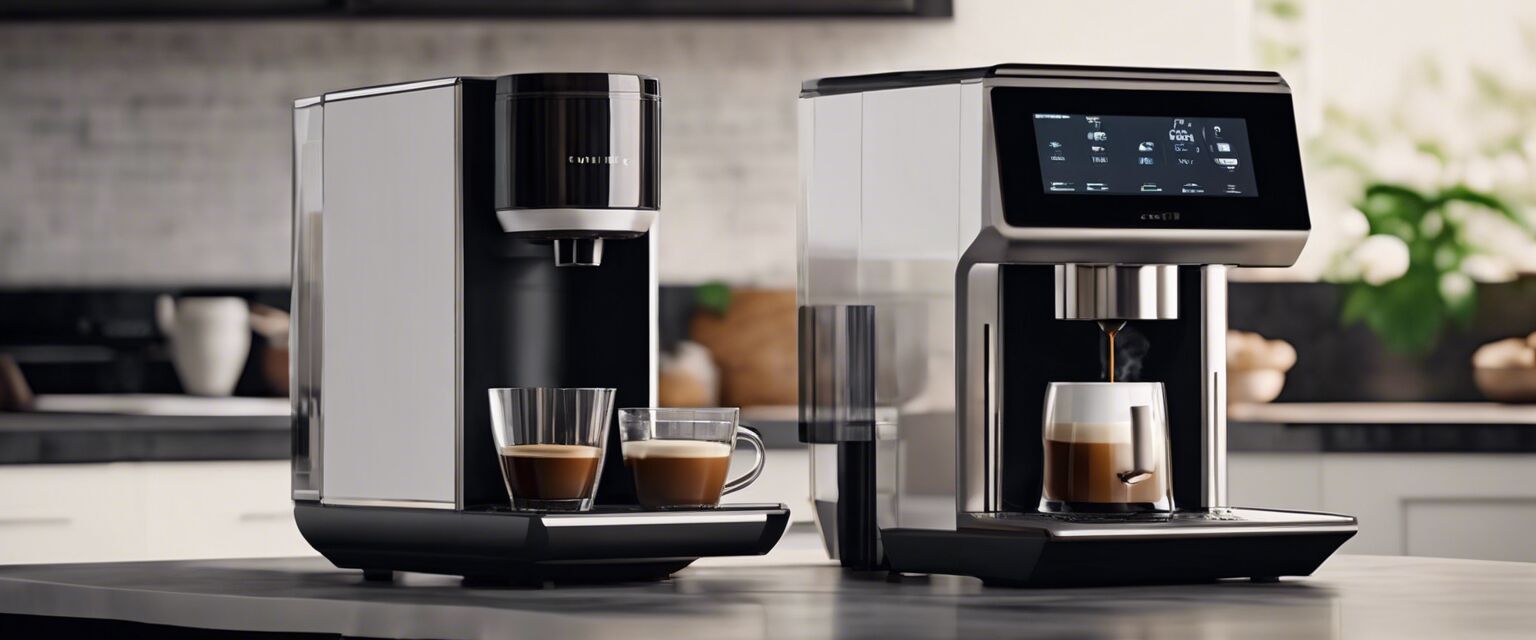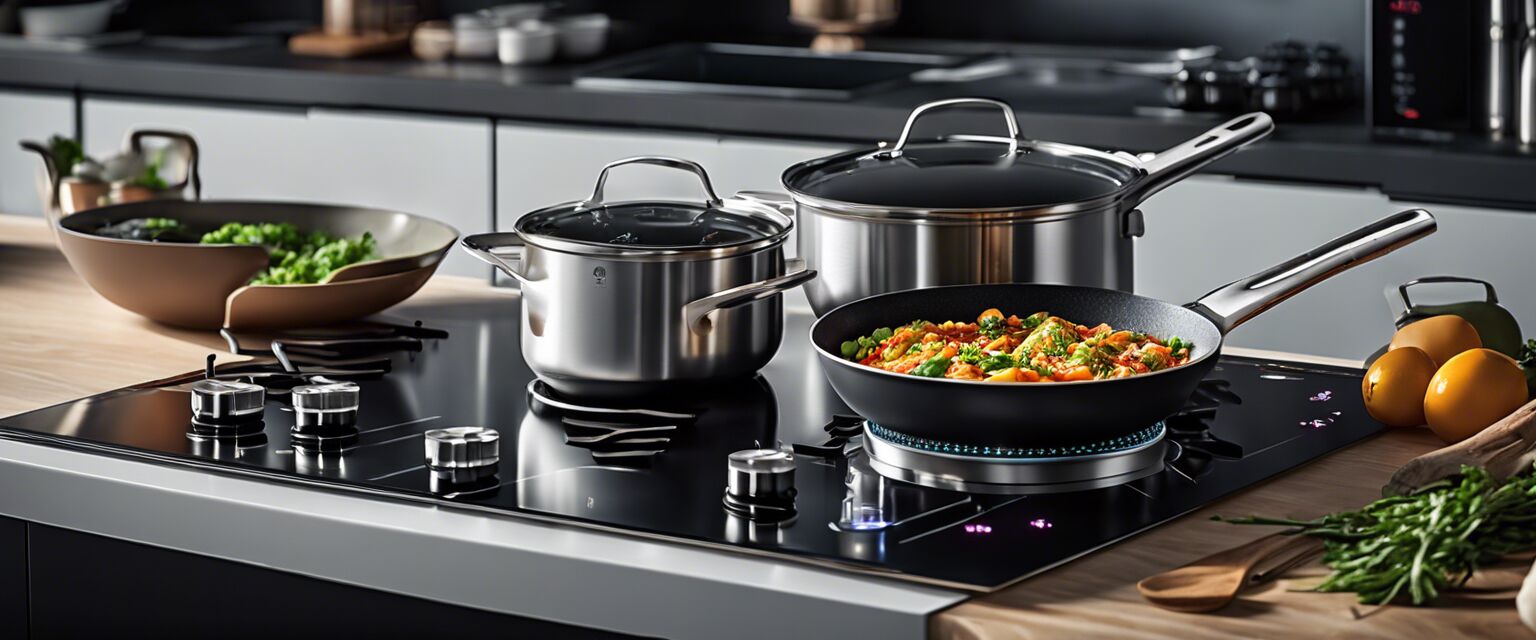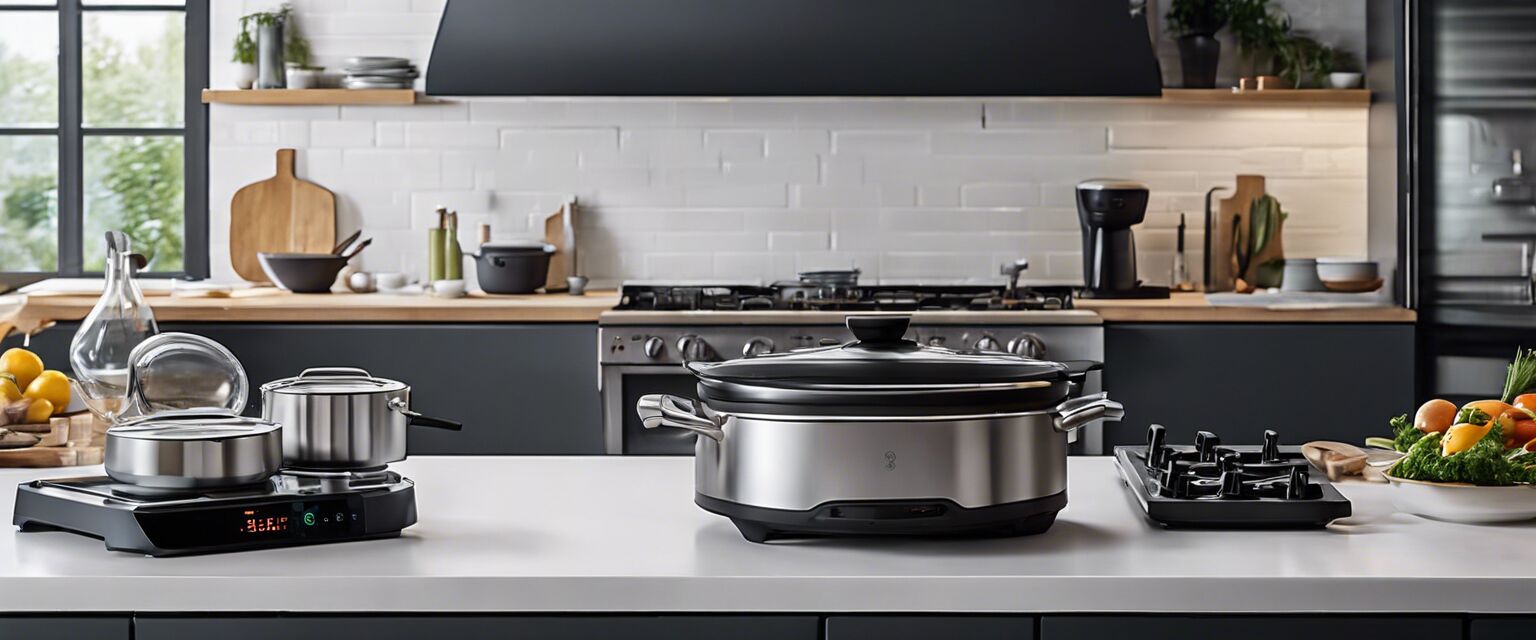
Bluetooth-enabled kitchen devices
Key Takeaways
- Bluetooth technology allows seamless connectivity between kitchen appliances.
- Smart devices enhance cooking efficiency and convenience.
- Bluetooth-enabled kitchen devices can be controlled remotely via smartphones.
- Examples include smart ovens, coffee makers, and dishwashers.
Bluetooth-enabled kitchen devices represent the latest in smart technology, making cooking and kitchen management easier and more efficient. These devices allow you to connect and control various kitchen appliances wirelessly using your smartphone or tablet. From coffee makers to ovens, the options are extensive. In this guide, we will explore the numerous Bluetooth-enabled appliances available and their innovative uses.
What are Bluetooth-enabled kitchen devices?
Bluetooth-enabled kitchen devices are appliances equipped with Bluetooth technology, allowing them to communicate with other devices such as smartphones, tablets, or computers. This connectivity provides users with the ability to control and monitor their appliances remotely, offering convenience and enhancing the cooking experience.
Examples of Bluetooth-enabled kitchen devices
| Device Type | Description | Key Features |
|---|---|---|
| Smart Ovens | Ovens that can be controlled via smartphone apps. | Remote cooking control, recipe guidance, and monitoring. |
| Automatic Coffee Makers | Coffee makers that brew coffee with app controls. | Scheduling, strength control, and temperature adjustments. |
| Smart Refrigerators | Refrigerators that keep track of food inventory. | Alerts for expiration dates, temperature control, and shopping lists. |
| Smart Dishwashers | Dishwashers that can be started or monitored remotely. | Cycle selection, maintenance alerts, and energy usage tracking. |
| Touchless Faucets | Faucets that activate with a wave of your hand. | Water conservation, temperature presets, and hands-free operation. |
Benefits of using Bluetooth-enabled kitchen devices
Integrating Bluetooth-enabled devices into your kitchen brings numerous advantages:
- Convenience: Control devices from anywhere within your home.
- Time-saving: Schedule appliances to operate at specific times.
- Efficiency: Monitor cooking progress without needing to be present.
- Enhanced cooking experience: Access recipes and cooking tips directly on your device.
How to choose the right Bluetooth-enabled kitchen device
Selecting the right Bluetooth-enabled kitchen appliance involves considering several factors:
- Compatibility: Ensure the device is compatible with your smartphone or smart home system.
- Features: Assess what features are most important for your cooking style.
- Size: Make sure the appliance fits in your kitchen space.
- Brand Reputation: Research brands for quality and customer support.
Popular Bluetooth-enabled kitchen appliances
Here are some popular types of Bluetooth-enabled kitchen appliances:
Comparison of Bluetooth-enabled kitchen devices
| Device | Control Method | Smart Features |
|---|---|---|
| Smart Oven | Mobile app | Recipe integration, remote monitoring |
| Automatic Coffee Maker | Mobile app | Scheduling, brew strength adjustment |
| Smart Refrigerator | Mobile app | Food inventory tracking, alerts |
| Smart Dishwasher | Mobile app | Cycle selection, maintenance alerts |
Tips for using Bluetooth-enabled kitchen devices
Beginner's Section
- Ensure Bluetooth is enabled on your device before connecting.
- Keep your device's software updated for optimal performance.
- Read the user manual to understand all features.
- Use the manufacturer's app for enhanced control and features.
Conclusion
Bluetooth-enabled kitchen devices are revolutionizing the way we cook and manage our kitchens. Their convenience, efficiency, and advanced features make them a worthwhile addition to any modern kitchen. Whether you are brewing coffee, cooking dinner, or managing your grocery list, these devices can make your life easier and more enjoyable.
Pros
- Increased convenience and efficiency.
- Remote access to kitchen appliances.
- Integration with smart home systems.
- Ability to monitor cooking progress.
Cons
- Potential connectivity issues.
- Dependence on smartphones and apps.
- Higher initial costs compared to non-smart devices.
- Security concerns with connected devices.
Additional Resources
For more information on smart kitchen technologies, check out these related articles:
